In Turkey, talks focus on eliminating barriers to women's leadership
At a symposium organized by the Committee on Equality of Opportunity for Women and Men of the Turkish Parliament, in partnership with UN Women, high-level Turkish government officials, alongside women leaders in politics, business and the public sector from around the world discussed ways to increase women’s participation in political decision-making.
Date:
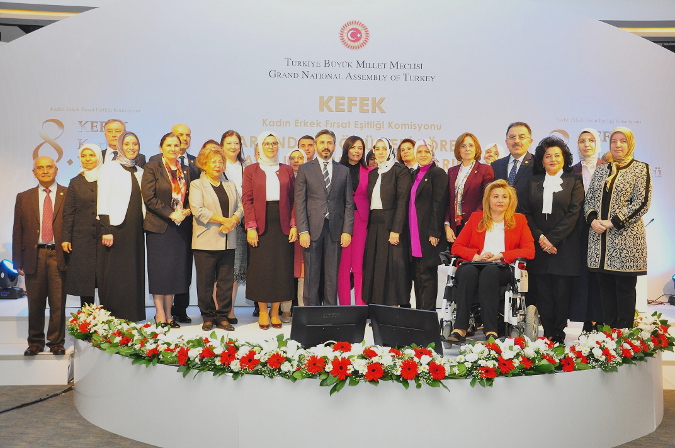
On 1-2 November in Ankara, Turkey’s capital, key Turkish political leaders met with successful women political and business leaders from Panama, Jordan, Bosnia Herzegovina and Macedonia to discuss ways to increase women’s participation in decision making and eliminate barriers to leadership in politics and the private and public sectors.
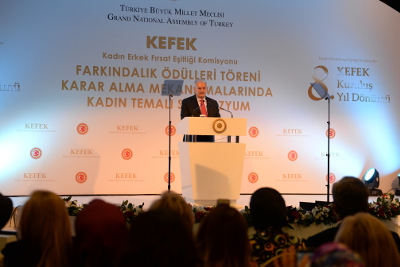
“Our target is 50-50,” declared Turkish Prime Minister Binali Yıldırım while talking about the number of women in the Turkish Parliament and added, “If our population consists of 50% women and 50% men, then everything should be equal. This is not a favour, this is a right.”
Organised by the Committee on Equality of Opportunity for Women and men of the Turkish Parliament (EOC) of the Grand National Assembly of Turkey (TGNA), in partnership with UN Women, the symposium Women in Decision Making Mechanisms: Politics, Public and Private Sector drew more than 500 participants, many of them high-level Turkish executive, legislative, political, academic and civil society representatives.
While women’s political participation has improved over the years, Turkish politicians acknowledged more needed to be done.
“Although the percentage of women parliamentarians has risen from 4.4 per cent to 14.7 per cent in 15 years, this is not the rate we want. Women should be represented equally as men. We will take every necessary measure to increase women’s representation in decision-making mechanisms,” said Fatma Betül Sayan Kaya, Turkish Minister of Family and Social Policies.
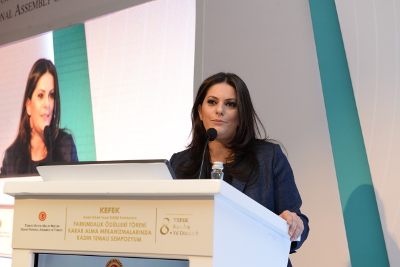
Turkish Minister of Labour and Social Security, Jülide Sarıeroğlu highlighted the government is working to increase women’s influence in decision-making mechanisms and at all levels of public life and said, “Development and a strong society is not possible without women.”
The percentage of the women in the Turkish parliament has increased gradually from 4.4 per cent in 2002 to 14.7 per cent in 2017, however the rates are below the global average which is 23.3 per cent. There are only 2 women ministers in the Turkish cabinet. According to the last local elections in 2014, the percentage of women mayors is 3 per cent, council members of municipalities is 10,7 per cent and members of provincial councils is 4,79 percent.
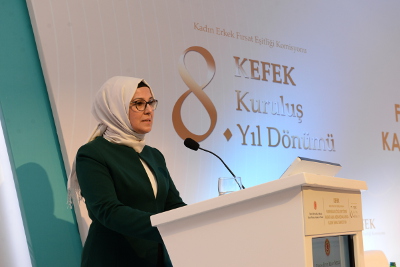
Participants of the symposium noted that raising women’s education, political participation and leadership are essential for parliamentary democracy, gender equality and to promote entrepreneurship, productivity and sustainable development.
“Increasing education will raise the number of women entrepreneurs and politicians. We can achieve the Sustainable Development Goals more quickly by increasing women’s productivity. Women’s employment contributes to economic development and democracy. The EOC is working beyond political parties to achieve these goals,” said Radiye Sezer Katırcıoğlu, Chairperson of the EOC.
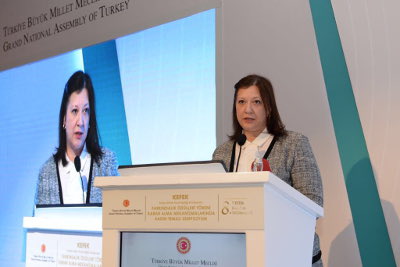
The meeting was held on the EOC’s 8th anniversary under the UN Women, EOC and Inter-parliamentary Union (IPU)-implemented project Gender Equality in Political Leadership and Participation in Turkey, which is funded by the Swedish International Development Cooperation Agency (SIDA).
“UN Women looks forward to supporting Turkey achieve gender equality and the Sustainable Development Goals (SDGs) by 2030 in close cooperation with national and local government officials, parliamentary committees, ministries and civil society,” said Alia El-Yassir, UN Women Deputy Regional Director for Europe and Central Asia, Head of Office a.i. and Representative to Turkey a.i.